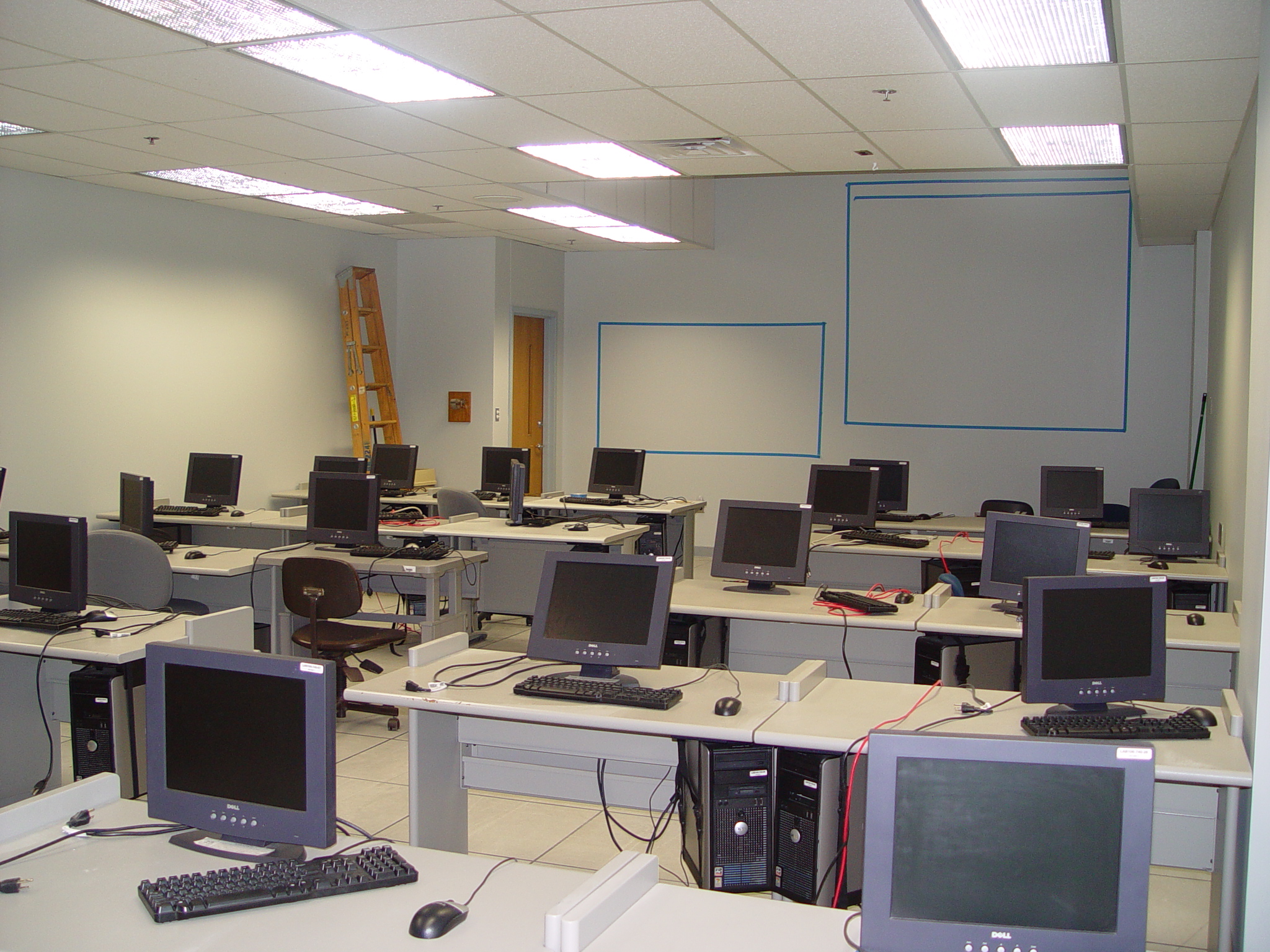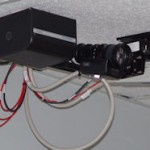Construction Starts on Second Cyber Classroom

Included in the long list of construction projects underway at the University of Michigan-Flint this summer, is a second Cyber Classroom (CC) for the Computer Science and Information Systems program.
The first Cyber Classroom was constructed by the Computer Science, Engineering, and Physics Department in Room 104 in the Murchie Science Building (MSB) almost four years ago. UM-Flint's is believed to be one of the first at any university. The popularity of the concept has led to converting Room 106 to a CC.
"The main feature of this system is that if students miss a class they can watch the entire classroom experience online," said Associate Professor Michael Farmer, Ph.D., who developed the first classroom. "It has allowed us to blur the distinction between in-class and online classes, and students can now mix and match their attendance to meet their life needs."

The Cyber Classroom contains a considerable amount of equipment. All of the lectures and faculty-student interaction are recorded with three cameras, and a series of microphones. The cameras have a robotic control system called the AutoAuditorium that switches views from the faculty to the slides, and to the full room view. Likewise, the microphones all automatically switch from the professor to the students based on who is talking. There is a large slide projector upon which everything is displayed. A digital whiteboard facilitates the capture of all the written material not only on the video, but also on PDF documents. There is a document camera and a laptop hookup to allow the faculty to use a variety of audio-visual mechanisms to facilitate learning. The room runs completely free of any technician, and requires the faculty to simply hit a single button to record their lectures. The combination of equipment, coupled with the simple operation, allows any faculty to use the room, and conduct lectures in their personal format and style rather than having to adapt to a particular method of teaching as is required in most other online educational tools.
According to Farmer, since using the CC, he has seen a 50% reduction in failing grades, and over a 30% increase in honor grades (B+ and above) when comparing the same courses taught prior to the CC. He said a survey of students using it indicated 78% preferred it to any other classroom or online format.
Related Posts
No related photos.
UM-Flint News
The Office of Marketing & Communications can be reached at mac-flint@umich.edu.